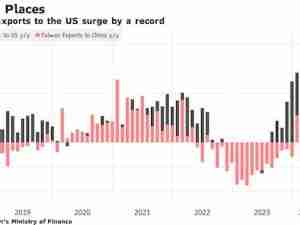A potential rollback of Corporate Average Fuel Economy (CAFE) standards may provide some relief to the US auto industry and raise Highway Trust Fund (HTF) revenue, according to Fitch Ratings. However, a financial windfall for the auto industry should not be expected, due to uncertainty around the California state-level waiver, long production lead times, and the effect fuel prices and overall economic conditions have on ongoing fuel usage. The additional revenue will also not address the HTF's long-term funding gap.
The Trump administration is reviewing current emissions standards that gradually raise requirements for fleet-wide average mpg to 54.5 for cars and light-duty trucks by model year through 2025 from 35.5 mpg in 2012. The US Environmental Protection Agency (EPA) administrator Scott Pruitt's proposal could freeze targets at 2020 levels. Timing of a resolution is unclear and there is uncertainty surrounding California's special status under the 1970 Clean Air Act. California, and other states choosing to follow, is allowed to set stricter vehicle pollution standards, which may result in multiple sets of rules in the US. We view uniform national EPA standards, and whether California gets to keep its waiver, as important factors for the auto industry.
Technological changes, such as the electrification of vehicles, may aid in the reduction of greenhouse gas emissions over time. Although fuel economy is an important consideration with consumers, when purchasing a vehicle, relatively low gas prices and a shift in consumer preference toward light trucks and utility vehicles has slowed the pace of fleet-wide fuel economy improvement. Improved vehicle quality and durability resulted in vehicles staying on the road for more years. Pent-up vehicle demand from the downturn was satisfied and this will contribute to a second year of declining vehicle sales in 2018. Fitch expects US light vehicle sales to total 16.8 million this year, down from 17.1 million in 2017 and 17.5 million in 2016.
Yet, less stringent fuel efficiency standards would be welcomed by the auto industry and states receiving gas tax revenue tied to fuel consumption, as this helps fund road infrastructure projects. Auto manufacturers are concerned with both the cost of implementing fuel savings technology, which they may not be able to pass through to consumers, and the need to sell "compliance cars", potentially at a loss, to offset increasing sales of pickups and utility vehicles. Not meeting the standards can be costly, as CAFE standards call for penalties of $55 per vehicle for every 1 mpg under the standard.
Near-term financial benefits from rolling back current standards are hard to quantify and would likely be delayed for auto manufacturers because vehicle specifications are substantially set several years in advance of production. Automakers would still have to invest in alternative fuel vehicles and other fuel efficiency-enhancing technologies to appeal to California and other states with stricter standards, given they represent a significant percent of US sales.
Rolling back or slowing the implementation of CAFE standards could raise HTF revenue. However, we anticipate any increase would be far too small to address the HTF's long-term funding gap or change highway funding broadly. The HTF is a primary source of federal support for highway infrastructure.
A 2012 Congressional Budget Office (CBO) report estimated that a 1% increase/decrease in fuel consumption equals a 1% reduction/increase in gas tax revenue. Therefore, changes in fuel efficiency have a 1:1 effect on the gas tax revenue funding the HTF. The CBO's most recent projection indicates revenue credited to the highway and transit accounts of the HTF will be insufficient to meet the fund's obligations in 2020.







